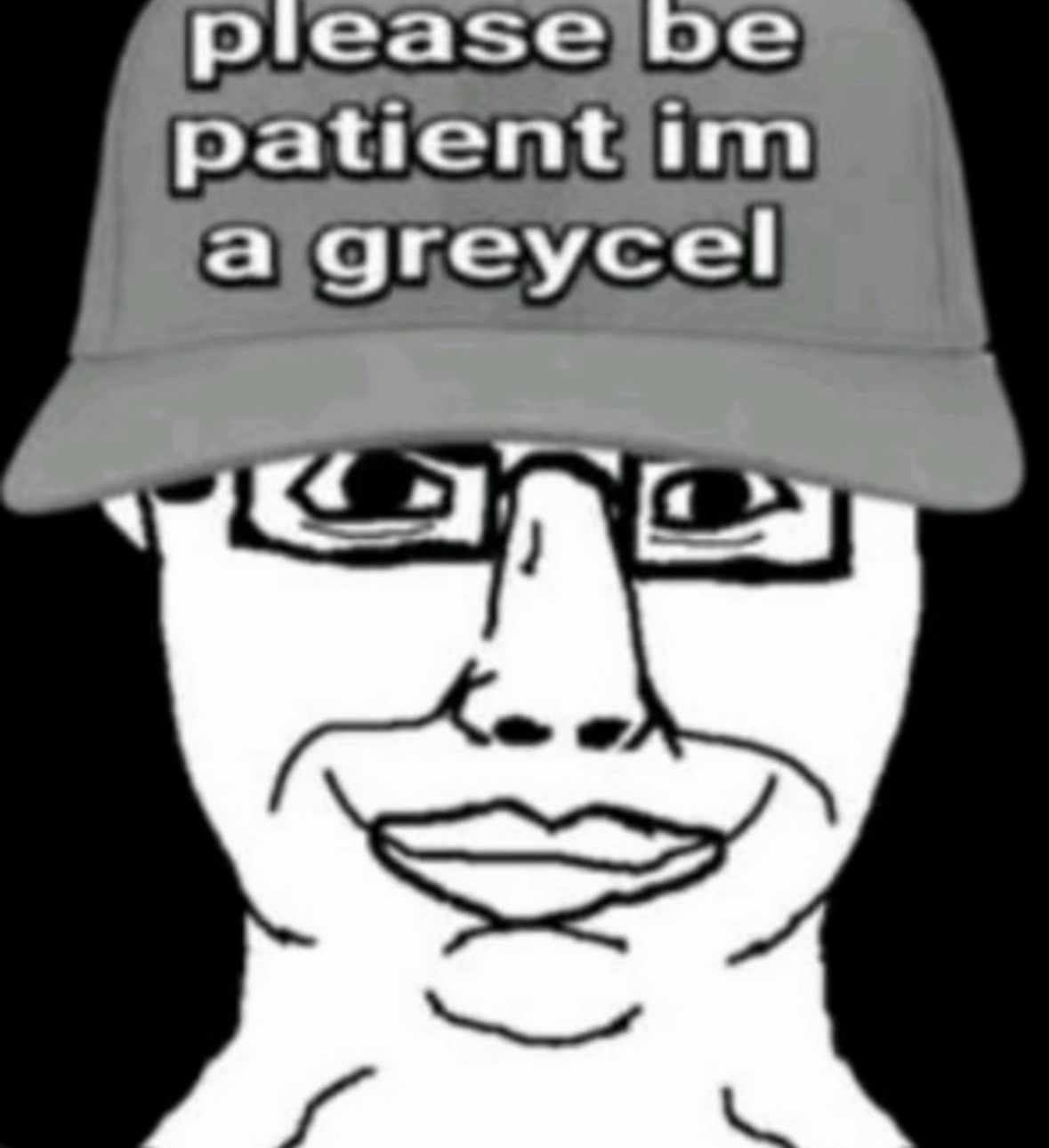NiZr
spread positivity ✱
- Joined
- Jan 25, 2025
- Posts
- 4,018
- Reputation
- 7,003
Looksmax.org has long existed as a peculiar yet revealing corner of the internet. At first, it was an obscure forum where young men, largely alienated from mainstream ideals of attractiveness and success, gathered to discuss appearance and the social hierarchies tied to it. Over the past few years, however, the site has undergone a cultural transformation. What was once an insular and often hostile enclave of men obsessed with physical optimization has gradually become more visible, more moderated, and paradoxically more mainstream. This shift—what many users and observers call the “gentrification” of Looksmax.org—has changed not only the tone of its discussions but also the purpose and identity of the community itself.
The transformation of Looksmax.org cannot be separated from broader changes in online male culture and the aesthetics of self-improvement. In its early years, the site’s discussions centered on the extreme end of physical modification: bone-structure surgery, facial implants, hairline reconstruction, jaw exercises, and the idea that appearance determines nearly every aspect of life’s outcome. Members spoke bluntly and often cruelly to one another, rating faces in numerical scales, diagnosing others’ flaws with a detached precision that bordered on pathology. It was a place of brutal honesty, or perhaps self-flagellation disguised as honesty. Many early users framed their participation as an act of truth-seeking. They saw themselves as part of a small, unflinching brotherhood willing to face the “reality” of human superficiality that polite society refused to admit.
This culture, however toxic it might have seemed to outsiders, had a coherence of its own. The ethos of the early community revolved around fatalism, hierarchy, and an almost scientific obsession with visual perfection. Users adopted their own slang and systems of measurement; they discussed “canthal tilt,” “midface ratio,” “gonial angle,” and other anatomical minutiae as though cataloging the laws of nature. Beneath the technical vocabulary, though, there was always a deep emotional current: resentment toward social rejection, frustration at invisibility, fear of being permanently undesirable. Looksmax.org, in that early form, functioned as both a support group and a laboratory for self-diagnosis.
Over time, this underground world began to attract attention. YouTube creators, journalists, and social media users began referencing “looksmaxxing,” often treating it as a curiosity or a cautionary tale. Some influencers borrowed ideas from the forum—such as jawline exercises or the technique known as “mewing”—and repackaged them for mass audiences. The word “looksmaxxing” itself began to circulate outside its original context, used by TikTok creators and lifestyle vloggers who wanted to talk about skincare or fitness. What had been a dark niche suddenly became a marketable form of self-improvement. The language of the subculture was absorbed by the mainstream, though stripped of its bleak philosophical underpinnings.
This new visibility inevitably drew new users to the original site. Many of them were younger, less experienced, and less steeped in the fatalistic worldview that defined the first generation. They came not to wallow in despair or self-analysis, but to look for tips, feedback, or community. As they arrived, the character of the forum began to shift. Threads that once explored complex theories about genetic determinism and facial harmony were replaced by simpler posts—teenagers asking for ratings, newcomers seeking validation, and endless repetitions of questions that older users had long ago tired of answering. To long-time members, it felt like the neighborhood had been invaded by tourists. The old sense of exclusivity vanished.
Moderation played a large role in accelerating this transformation. In its earliest days, Looksmax.org was virtually unmoderated, which allowed it to cultivate a raw and often disturbing authenticity. Insults, slurs, and extreme statements were common, creating an atmosphere both liberating and corrosive. As the site’s user base expanded and as outside scrutiny increased, the administrators introduced stricter rules. Offensive posts were deleted; repeat offenders were banned. What had been an anarchic community began to resemble a conventional internet forum with terms of service, codes of conduct, and moderators enforcing civility. Some users celebrated the change, seeing it as a necessary step toward respectability. Others saw it as betrayal—the end of the brutal honesty that had defined the site.
Complaints about “banning everyone” became frequent. Threads appeared lamenting that the forum was being sanitized, that moderators were trying to appease advertisers or journalists. Many long-term members compared the situation to urban gentrification: newcomers moving in, property values rising, old residents priced out, the neighborhood losing its character. In their eyes, Looksmax.org had been colonized by the very types of people it once stood apart from—the mainstream, the normal, the socially accepted. The language of resentment, long directed toward attractive men and women in the outside world, turned inward toward the forum’s own newcomers.
The metaphor of gentrification fits because the process involved not only demographic change but also cultural displacement. As moderation increased and membership diversified, the atmosphere of extremity softened. Discussions about “blackpill” ideology—the belief that genetics entirely determine romantic and social success—became less central. Instead, threads about gym routines, skincare, and general self-care began to dominate. The new tone was less fatalistic, more optimistic, and therefore, to old members, more dishonest. What had once been an enclave of radical realism became, in their view, just another self-help forum.
The reasons for this transformation are complex. Part of it stems from the natural evolution of online communities. Every forum that survives long enough faces a tension between insularity and growth. A small group sustains a unique culture, but as the group grows, that culture becomes difficult to maintain. In the case of Looksmax.org, growth was driven by algorithmic attention. The rise of short-form content on social media rewarded any topic that mixed shock value with self-improvement, and looksmaxxing offered precisely that. The same videos and posts that mocked the community also served as free advertising.
Economic incentives also played a role. The broader “self-improvement” industry—ranging from cosmetic clinics to supplement companies—benefited from the spread of looksmaxxing ideology. Once the term gained traction, it became a convenient label for selling products. The commercialization of what was once a subcultural language inevitably changed its meaning. When money and branding enter a space, regulation follows; moderation becomes a form of risk management. The gentrification of Looksmax.org can thus be seen as the result of commercialization, a process that exchanges authenticity for sustainability.
Generational turnover amplified these pressures. Many of the site’s earliest members were men in their twenties or thirties who approached looksmaxxing as a long-term project or as a philosophical expression of despair. The new generation arriving from TikTok and YouTube tended to be teenagers, immersed in influencer culture and accustomed to seeking validation through likes and ratings. Their motivations were different. They did not necessarily share the fatalism of their predecessors; they saw looksmaxxing as a game or a challenge rather than a tragic necessity. This generational divide altered the emotional tenor of the community. To the old guard, the new users seemed shallow and unserious; to the newcomers, the veterans seemed bitter and out of touch.
The consequences of this shift have been contradictory. On one hand, the gentrification of Looksmax.org made the site more approachable and arguably safer. Discussions that once glorified self-harm or extreme surgical procedures became less visible. Newcomers could find practical advice about fitness, grooming, and social confidence without being immediately exposed to the most nihilistic content. The tone, while still blunt, began to allow for encouragement rather than pure derision. For some users, this change represented progress—a sign that the community was evolving into a healthier space.
On the other hand, many of the site’s distinctive features were lost. The uncompromising honesty that defined early Looksmax culture was replaced by a softer, more performative version of self-improvement. The intricate anatomical discussions that once filled the forums gave way to simplified advice and recycled memes. The same forces that made the site more inclusive also made it less intelligent, less self-aware, and less capable of producing genuine insight. What had been a place for radical reflection on the role of appearance in human life became another corner of the vast online self-help industry
The transformation of Looksmax.org cannot be separated from broader changes in online male culture and the aesthetics of self-improvement. In its early years, the site’s discussions centered on the extreme end of physical modification: bone-structure surgery, facial implants, hairline reconstruction, jaw exercises, and the idea that appearance determines nearly every aspect of life’s outcome. Members spoke bluntly and often cruelly to one another, rating faces in numerical scales, diagnosing others’ flaws with a detached precision that bordered on pathology. It was a place of brutal honesty, or perhaps self-flagellation disguised as honesty. Many early users framed their participation as an act of truth-seeking. They saw themselves as part of a small, unflinching brotherhood willing to face the “reality” of human superficiality that polite society refused to admit.
This culture, however toxic it might have seemed to outsiders, had a coherence of its own. The ethos of the early community revolved around fatalism, hierarchy, and an almost scientific obsession with visual perfection. Users adopted their own slang and systems of measurement; they discussed “canthal tilt,” “midface ratio,” “gonial angle,” and other anatomical minutiae as though cataloging the laws of nature. Beneath the technical vocabulary, though, there was always a deep emotional current: resentment toward social rejection, frustration at invisibility, fear of being permanently undesirable. Looksmax.org, in that early form, functioned as both a support group and a laboratory for self-diagnosis.
Over time, this underground world began to attract attention. YouTube creators, journalists, and social media users began referencing “looksmaxxing,” often treating it as a curiosity or a cautionary tale. Some influencers borrowed ideas from the forum—such as jawline exercises or the technique known as “mewing”—and repackaged them for mass audiences. The word “looksmaxxing” itself began to circulate outside its original context, used by TikTok creators and lifestyle vloggers who wanted to talk about skincare or fitness. What had been a dark niche suddenly became a marketable form of self-improvement. The language of the subculture was absorbed by the mainstream, though stripped of its bleak philosophical underpinnings.
This new visibility inevitably drew new users to the original site. Many of them were younger, less experienced, and less steeped in the fatalistic worldview that defined the first generation. They came not to wallow in despair or self-analysis, but to look for tips, feedback, or community. As they arrived, the character of the forum began to shift. Threads that once explored complex theories about genetic determinism and facial harmony were replaced by simpler posts—teenagers asking for ratings, newcomers seeking validation, and endless repetitions of questions that older users had long ago tired of answering. To long-time members, it felt like the neighborhood had been invaded by tourists. The old sense of exclusivity vanished.
Moderation played a large role in accelerating this transformation. In its earliest days, Looksmax.org was virtually unmoderated, which allowed it to cultivate a raw and often disturbing authenticity. Insults, slurs, and extreme statements were common, creating an atmosphere both liberating and corrosive. As the site’s user base expanded and as outside scrutiny increased, the administrators introduced stricter rules. Offensive posts were deleted; repeat offenders were banned. What had been an anarchic community began to resemble a conventional internet forum with terms of service, codes of conduct, and moderators enforcing civility. Some users celebrated the change, seeing it as a necessary step toward respectability. Others saw it as betrayal—the end of the brutal honesty that had defined the site.
Complaints about “banning everyone” became frequent. Threads appeared lamenting that the forum was being sanitized, that moderators were trying to appease advertisers or journalists. Many long-term members compared the situation to urban gentrification: newcomers moving in, property values rising, old residents priced out, the neighborhood losing its character. In their eyes, Looksmax.org had been colonized by the very types of people it once stood apart from—the mainstream, the normal, the socially accepted. The language of resentment, long directed toward attractive men and women in the outside world, turned inward toward the forum’s own newcomers.
The metaphor of gentrification fits because the process involved not only demographic change but also cultural displacement. As moderation increased and membership diversified, the atmosphere of extremity softened. Discussions about “blackpill” ideology—the belief that genetics entirely determine romantic and social success—became less central. Instead, threads about gym routines, skincare, and general self-care began to dominate. The new tone was less fatalistic, more optimistic, and therefore, to old members, more dishonest. What had once been an enclave of radical realism became, in their view, just another self-help forum.
The reasons for this transformation are complex. Part of it stems from the natural evolution of online communities. Every forum that survives long enough faces a tension between insularity and growth. A small group sustains a unique culture, but as the group grows, that culture becomes difficult to maintain. In the case of Looksmax.org, growth was driven by algorithmic attention. The rise of short-form content on social media rewarded any topic that mixed shock value with self-improvement, and looksmaxxing offered precisely that. The same videos and posts that mocked the community also served as free advertising.
Economic incentives also played a role. The broader “self-improvement” industry—ranging from cosmetic clinics to supplement companies—benefited from the spread of looksmaxxing ideology. Once the term gained traction, it became a convenient label for selling products. The commercialization of what was once a subcultural language inevitably changed its meaning. When money and branding enter a space, regulation follows; moderation becomes a form of risk management. The gentrification of Looksmax.org can thus be seen as the result of commercialization, a process that exchanges authenticity for sustainability.
Generational turnover amplified these pressures. Many of the site’s earliest members were men in their twenties or thirties who approached looksmaxxing as a long-term project or as a philosophical expression of despair. The new generation arriving from TikTok and YouTube tended to be teenagers, immersed in influencer culture and accustomed to seeking validation through likes and ratings. Their motivations were different. They did not necessarily share the fatalism of their predecessors; they saw looksmaxxing as a game or a challenge rather than a tragic necessity. This generational divide altered the emotional tenor of the community. To the old guard, the new users seemed shallow and unserious; to the newcomers, the veterans seemed bitter and out of touch.
The consequences of this shift have been contradictory. On one hand, the gentrification of Looksmax.org made the site more approachable and arguably safer. Discussions that once glorified self-harm or extreme surgical procedures became less visible. Newcomers could find practical advice about fitness, grooming, and social confidence without being immediately exposed to the most nihilistic content. The tone, while still blunt, began to allow for encouragement rather than pure derision. For some users, this change represented progress—a sign that the community was evolving into a healthier space.
On the other hand, many of the site’s distinctive features were lost. The uncompromising honesty that defined early Looksmax culture was replaced by a softer, more performative version of self-improvement. The intricate anatomical discussions that once filled the forums gave way to simplified advice and recycled memes. The same forces that made the site more inclusive also made it less intelligent, less self-aware, and less capable of producing genuine insight. What had been a place for radical reflection on the role of appearance in human life became another corner of the vast online self-help industry









